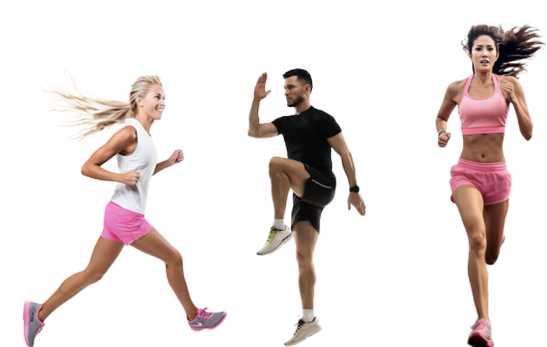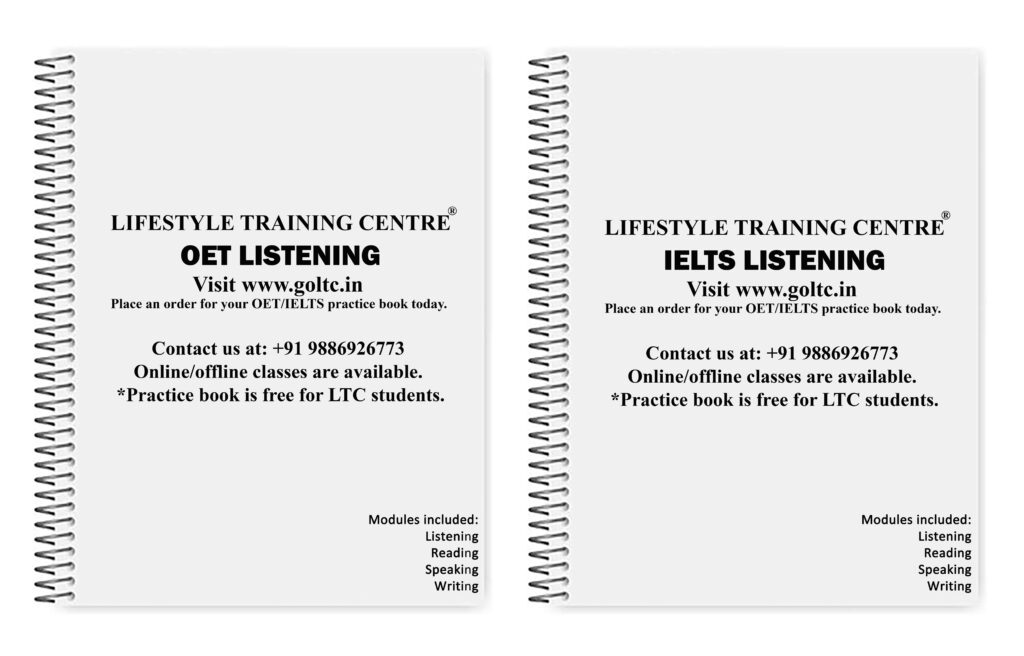Task 1 questions and answers
1. Do you think people pay more attention to fashion today than in the past? Why or why not?
Yes, it’s crystal clear that people today are more focused on fashion than ever before. This change stems from the rise of social media as a catwalk where everyone showcases their style. Influencers and celebrities set trends that trickle down rapidly, creating a buzz about what’s in vogue. The ease of online shopping, which is like having the mall at your fingertips, has also heightened this attention. Additionally, fashion has become a means of standing out in the crowd, as many use clothing to craft their public image.
2. What role do clothes play in expressing a person’s identity?
Clothes serve as a window to the soul, offering insights into a person’s character, culture, and mood. For instance, someone dressed in a sharp suit might convey professionalism, while another in bold, eclectic prints might reflect a creative spirit. Fashion often becomes a silent language, speaking volumes about someone’s preferences and passions. Traditional outfits, in particular, are woven with pride, representing one’s heritage. Ultimately, our clothing choices can paint a picture of who we are without uttering a word.
3. How important is it for you to wear fashionable clothes? Why or why not?
Fashionable clothing is important to me, but it’s not the be-all and end-all. I believe in the saying, “clothes make the man,” but comfort and authenticity are equally crucial. Wearing something stylish yet practical allows me to feel confident and true to myself. Chasing trends for the sake of fitting in often leads to style over substance, which I avoid. My mantra is simple: look good, feel good, but stay grounded in what suits me.
4. What factors influence your choice of clothing for different occasions?
The setting sets the stage for my outfit choices. For formal occasions, I opt for classic and elegant attire, while casual settings call for relaxed and breathable fabrics. Weather, too, plays a major role—nobody wants to freeze in style or sweat in silk. Beyond practicality, I consider colour coordination and personal expression. Sometimes, it’s about dressing to impress, and at other times, it’s simply about feeling like myself.
5. Are there any traditional clothes in your country that are still commonly worn today?
Absolutely, traditional clothes are alive and kicking, especially during festivals and special events. In India, for example, sarees, lehengas, and kurta-pajamas are crowd favourites during weddings and celebrations. These garments, often adorned with intricate embroidery, are timeless treasures that connect people to their roots. It’s heartening to see younger generations embracing these styles, proving that old is gold even in the world of fashion.
6. What do you think are the advantages and disadvantages of online clothes shopping?
Online shopping is a double-edged sword. On one hand, it’s incredibly convenient, offering endless options at the click of a button. The ability to compare prices and access customer reviews is a game-changer. On the flip side, sizing issues and the lack of a tactile experience can leave buyers in a pickle. Moreover, the environmental toll of returns and packaging is a fly in the ointment of this otherwise revolutionary system.
7. How do clothes contribute to a person’s confidence and self-esteem?
Clothing can be a suit of armour, boosting confidence and self-esteem. When someone wears an outfit they love, it often results in a spring in their step and a heightened sense of self-worth. Well-tailored clothes not only fit better but make people feel they fit in socially or professionally. As they say, “dress for the job you want,” and I believe this mantra holds true for every aspect of life.
8. What is your opinion on the fashion industry’s impact on the environment?
The fashion industry’s environmental impact is a ticking time bomb. From the mountains of waste generated by fast fashion to the excessive water use in production, the damage is staggering. Synthetic fabrics, often hailed as innovative, are wolves in sheep’s clothing, contributing to microplastic pollution. However, with the rise of sustainable practices and consumer awareness, there’s hope that the industry can turn the tide before it’s too late.
9. Do you think there is a connection between a person’s clothing choices and their personality?
Certainly, clothing choices are often a mirror of one’s personality. For instance, someone drawn to bold colours and patterns might have a lively and outgoing nature. Meanwhile, minimalistic or neutral attire often reflects a preference for simplicity and sophistication. Fashion can also act as a chameleon, allowing people to adapt their image to different scenarios. It’s a fascinating interplay of psychology and style, where clothes often speak louder than words.
10. In your opinion, how can people strike a balance between fashion and sustainability when it comes to clothing?
Balancing fashion and sustainability requires a shift in mindset. Prioritising quality over quantity and supporting ethical brands is a step in the right direction. Upcycling and repurposing clothes breathe new life into old garments, turning them into hidden gems. A capsule wardrobe filled with timeless, versatile pieces can reduce impulse purchases. As the saying goes, “waste not, want not,” and this principle is key to building a sustainable fashion future.
List of vocabulary used: (Task 1)
- Undoubtedly – Without a doubt; certainly.
- Crystal clear – Extremely obvious or easy to understand.
- Catwalk – A narrow platform used by models to display clothing; metaphorically, a stage for showcasing.
- Globalisation – The process of interaction and integration among people, companies, and governments worldwide.
- Buzz – Excited or talkative activity; a current trend or interest.
- Convenience – The state of being able to proceed with something with little effort or difficulty.
- Empowerment – The process of becoming confident or stronger.
- Ecological – Relating to the environment or ecosystem.
- Heritage – Traditions, values, and artefacts passed down from previous generations.
- Sophistication – The quality of being refined, cultured, or worldly.
- Authenticity – The quality of being genuine or true.
- Trickle down – To spread gradually from one level to another.
- Tactile – Relating to the sense of touch.
- Versatile – Capable of adapting to many functions or activities.
- Microplastic – Tiny plastic particles harmful to the environment.
- Capsule wardrobe – A small collection of timeless, interchangeable clothing.
- Sustainability – The ability to maintain or support something over the long term.
- Impulsive – Acting without forethought or planning.
- Upcycling – Reusing discarded objects or materials to create a product of higher quality or value.
Idioms with Meanings
- Suit of armour – Something that provides protection or confidence.
- Spring in their step – A lively or energetic mood or movement.
- Dress for the job you want – Present yourself as you wish to be perceived.
- Silent language – Communication that is non-verbal but meaningful.
- Old is gold – Something from the past that holds great value.
- Double-edged sword – Something that has both advantages and disadvantages.
- Fly in the ointment – A small problem that spoils something good.
- Wolves in sheep’s clothing – Something that appears harmless but is actually dangerous.
- Turn the tide – To cause a significant change in the direction of events.
- Hidden gems – Valuable things that are not well-known.
Phrases with Meanings
- Social media as a catwalk – Using social media as a platform to showcase personal style.
- Be-all and end-all – The most important thing.
- Setting sets the stage – The environment determines the requirements.
- Timeless treasures – Things that remain valuable or significant across ages.
- Game-changer – Something revolutionary that alters the course of events.
- Weaving with pride – Incorporating cultural elements into daily life with honour.
- Step in the right direction – A positive or progressive action.
- Less is more – The idea that simplicity is often better.
- Paint a picture of who we are – To represent or illustrate a person’s character.
- Fashion as a chameleon – The ability of fashion to adapt and change.
Task 2
Topic: An Unusual Food
– Question 17: Describe an unusual food you’ve tried.
– You should say:
– What is the food, and where did you try it?
– How did you feel about tasting it?
– What are the ingredients, and how is it prepared?
– Would you try it again?
Task 3 follow-up questions and answers
1. How do you think food influences culture in different countries?
Food is undoubtedly a gateway to understanding different cultures. Every country’s cuisine is steeped in tradition, offering a taste of its history, climate, and values. For example, Indian food is rich in spices, which reflects the country’s diverse flora and vibrant culture. In contrast, Japanese cuisine is known for its minimalism, showcasing respect for simplicity and natural ingredients. Food has a unique way of bonding people, whether it’s a family meal, a celebration, or a shared dish. It’s amazing how one bite can instantly take you back to a place or memory.
2. Do you think people are becoming more adventurous with food nowadays?
Yes, people today are definitely more open-minded when it comes to food. The globalisation of food culture means that unusual or exotic dishes are now at our fingertips. A dish that might have been considered out of the ordinary a decade ago is now easily found in local restaurants or online recipes. The rise of food blogs and social media influencers has also led to a growing curiosity about trying new flavours. People are more willing to step out of their comfort zone and experiment, especially in the age of food fusion.
3. What are some foods that are considered unusual in your country?
In my country, there are many foods that may seem unusual to outsiders. For example, fermented fish or insects, such as crickets or mealworms, are delicacies in certain regions. While these dishes may raise an eyebrow for those unacquainted with them, they are deeply embedded in the culture. People often view these foods as a delicious way to connect with the past and embrace the flavours of their ancestors. As the saying goes, one man’s food is another man’s poison, meaning what may seem unusual to some, is a source of pride for others.
4. Why do you think people are reluctant to try unusual foods?
People often hesitate to try unusual foods because of fear of the unknown. When a dish looks or smells unfamiliar, it’s easy to dismiss it, assuming it may not be to their taste. Our palates are creatures of habit, and stepping outside of our comfort zone can feel like stepping into uncharted waters. There’s also the psychological factor of cultural conditioning, where certain foods are perceived as strange simply because they don’t fit the norms of one’s own culture. However, broadening one’s culinary horizon can be a rewarding experience, revealing flavours and textures we never thought possible.
5. How do you think the presentation of food affects its appeal?
The presentation of food plays a huge role in how it is perceived. A beautifully arranged dish is often more appetising, and we tend to enjoy food more when it’s visually appealing. People are more likely to give an unfamiliar food a try if it looks beautifully crafted, almost like a piece of art. As they say, we eat with our eyes first, and the aesthetics can often make the difference between a memorable meal and one that’s quickly forgotten. A dish that’s garnished to perfection can elevate the entire dining experience.
6. How do food trends impact the way people try new foods?
Food trends have a significant influence on people’s willingness to try new dishes. For instance, the rise of food challenges on social media has led to an increase in adventurous eating. What was once considered an oddball dish is now gaining mainstream popularity, thanks to influencers showcasing it on their platforms. People often feel the urge to hop on the bandwagon and experience what others are raving about, especially if it promises a novel experience. The growing trend of sustainable eating has also led to a rise in plant-based and ethically sourced foods, which many may have previously found unconventional.
7. Do you think it’s important to be open-minded about trying new dishes?
Absolutely! Being open-minded about food is key to discovering new flavours and expanding our culinary repertoire. As the saying goes, variety is the spice of life, and trying new dishes can bring about exciting experiences. You might surprise yourself by liking something that initially seemed far out of your league. Additionally, food is a way to break the ice in social situations, allowing us to bond with others through shared meals. In a world full of flavours and textures, staying open to new dishes can make your dining experience much more interesting.
8. How has the availability of exotic ingredients changed the way we cook at home?
The availability of exotic ingredients has revolutionised home cooking. With online grocery stores and international supermarkets, rare spices and unusual fruits are now just a click away. This has opened the door to a new world of flavours, encouraging home cooks to experiment like never before. For example, many people now try their hand at making sushi or crafting curries from scratch, using ingredients they wouldn’t have been able to find in the past. It’s no longer a matter of sticking to the usual recipes; cooking has become a chance to explore the world on a plate.
9. How do you feel about the trend of eating insects or other unconventional foods?
The trend of eating insects and unconventional foods is certainly gaining ground. While it may seem strange at first, I believe it’s a step in the right direction for sustainability. Insects, for instance, are a high-protein, low-cost alternative to meat, and they’re more eco-friendly to produce. In many cultures, they’ve been a staple for centuries, so the idea of eating insects is not as far-fetched as it may seem. Opening up to new sources of protein could be part of the solution to global food security issues, and it’s interesting to see how attitudes towards these foods are evolving.
10. How does food play a role in social gatherings?
Food is the star of the show when it comes to social gatherings. It’s the glue that holds people together, whether it’s a family dinner, a wedding, or a friendly get-together. Sharing a meal is a time-honoured tradition that brings people closer, allowing them to bond over good conversation and savour every bite. The act of cooking for others is often seen as a labour of love, and meals can create lasting memories. In many cultures, a meal is much more than sustenance; it’s about connecting, celebrating, and making people feel welcome.
List of vocabulary used: (Task 3)
- Gateway – An opening or means of access.
- Tradition – A long-established custom or belief passed down through generations.
- Rich in spices – Full of various aromatic flavours, often used to describe complex flavours in food.
- Minimalism – A style or approach that is simple and stripped down to the essentials.
- Palate – A person’s ability to taste and appreciate flavours; also refers to their taste preferences.
- Creatures of habit – People who prefer to stick to routine and familiarity.
- Uncharted waters – Unknown or unfamiliar situations or experiences.
- Comfort zone – A psychological state where one feels safe and familiar; reluctance to try new things.
- Cultural conditioning – The process of being influenced by the beliefs, values, and norms of one’s culture.
- Appetising – Food that looks, smells, or tastes good, stimulating the desire to eat.
- Crafted – Made skillfully or carefully.
- Fusion – The combination of two or more different elements, especially in food, to create something new.
- Bonding – The process of forming a connection or relationship with others.
- Repertoire – A collection or range of skills, works, or abilities.
- Novel experience – A new, original, and unfamiliar experience.
- Exotic – Unusual or foreign, often with a connotation of being exciting or intriguing.
- Eco-friendly – Having a minimal or positive impact on the environment.
- Flavours and textures – The tastes and physical sensations of food in the mouth.
- Sustainability – The ability to maintain or preserve something, often with regard to the environment or food production.
- Alternative – A choice or option that is different from the usual or standard.
- Staple – A basic or essential item, often used in reference to food that is commonly consumed.
- Protein – A nutrient essential for the body, often used to describe food sources that provide it.
- Eco-friendly – Designed or made to not harm the environment.
- Labour of love – A task done with great care and effort, often out of affection or passion.
Idioms with Meanings
- Gateway to understanding – A means of gaining insight or knowledge.
- Step out of your comfort zone – To try something new or different, especially something that may be difficult or intimidating.
- One man’s food is another man’s poison – What one person enjoys, another may not, illustrating differing tastes and preferences.
- We eat with our eyes first – People often judge food by its appearance before tasting it.
- Step into uncharted waters – To do something unfamiliar or explore unknown territory.
- Break the ice – To initiate a conversation or interaction, especially in social situations.
- Variety is the spice of life – Emphasises that variety and change add excitement and interest to life.
- Hop on the bandwagon – To join or adopt something that is currently popular or fashionable.
- Out of your league – Something beyond your ability, reach, or experience.
- The star of the show – The main attraction or focus of attention.
Phrases with Meanings
- Gateway to understanding – A means or approach that helps one gain insight into a subject or culture.
- Stepping out of the comfort zone – Taking the initiative to try new things or face challenges.
- The flavour of the month – Something that is currently very popular or trendy.
- A labour of love – A task done with great care and passion, usually without expecting a material reward.
- Out of the ordinary – Something unusual or uncommon.
- On the bandwagon – Joining others in an activity or trend that is popular at the moment.
- Bond over food – To form a close connection or relationship with someone while sharing a meal.
- A taste of tradition – An experience that involves something traditional, often in terms of food or culture.
- The spice of life – Something that adds excitement and variety to life.
- Opening up to new sources of protein – Exploring alternative or unconventional sources of protein, often for health or environmental reasons.
IELTS Speaking Task Topics
Click on any topic to explore more!
Names

Learn about the importance of names and their cultural significance.
Study / Job

Discuss various aspects of studying and working in different fields.
Hometown

Explore the charm of your hometown and its unique features.
Accomodation

Understand various types of accommodation and living situations.
Weather

Learn about how weather influences daily life and activities.
Time

Discuss the concept of time, its importance, and time management.
Television

Talk about the role of television in modern entertainment.
Museum

Discuss the cultural importance of museums and historical exhibits.
Holidays

Explore the significance of holidays and different celebrations.
Films

Learn about the impact of films on culture and society.
Leisure Time

Discuss how leisure activities impact personal well-being.
Sport

Talk about the role of sports in health, entertainment, and culture.
Vegetables and Fruits

Discuss the health benefits and importance of fresh produce.
Maths

Explore the role of mathematics in various aspects of life.
Sky

Discuss the beauty and scientific significance of the sky.
Clothes&Fashion

Explore how clothing reflects culture and personal expression.
Weekend

Discuss the importance of weekends and ways people relax.
Reading

Learn about the importance of reading and various reading habits.
Sleep

Explore how sleep impacts physical and mental well-being.
Trees&Plants

Discuss the environmental and health benefits of plants.
Newspaper

Discuss the evolving role of newspapers in the digital age.
Texting

Explore the role of text messaging in modern communication.
Memorising

Learn techniques for improving memory and memorization.
Travelling

Discuss the importance and impact of traveling in modern society.
Communication

Explore the modes and significance of communicating well
Letter&Email

Explore the differences and significance of letters vs. emails.
Swimming

Discuss the benefits of swimming for health and fitness.
Snacks

Explore the role of snacks in daily nutrition and lifestyle.
Photography

Discuss photography’s cultural and artistic significance.
Help

Talk about the importance of offering and receiving help.
History

Discuss historical events and their impact on modern society.
Handwriting

Explore the significance of handwriting in education and culture.
Music

Learn about the influence of music on emotions and society.
Colours

Discuss how colours affect perception and mood.
Teachers

Explore the role of teachers in shaping students’ futures.
Being Alone

Talk about the experience and benefits of spending time alone.
Teamwork

Learn the importance of teamwork in professional and social contexts.
Countryside & City

Explore the charm and benefits of living in the countryside.
Social Media

Discuss the impact of social media on society and relationships.
Friends

Explore the importance of friendships in life.
Artificial Intelligence (AI)

Talk about the future of AI and its role in society.
Climate Change

Discuss the causes and consequences of climate change.
Transportation

Explore different modes of transportation in your area.
Sustainable Transportation

Explore ways to make transportation more environmentally friendly.
Space Exploration

Learn about the latest advancements in space exploration.
Shopping

Explore how shopping influences culture and the economy.
Modern Technology

Discuss how modern technology is reshaping society.
Technology

Learn about the role of technology in everyday life.
Sustainable Living

Explore ways to live sustainably for the future of the planet.
Globalisation

Learn about the effects of globalisation on society and economies.
Global Warming

Discuss the causes, effects, and solutions to global warming.
Gender Equality

Explore the importance of gender equality in modern society.
Health and Fitness

Discuss the importance of maintaining a healthy lifestyle.
Renewable Energy

Learn about renewable energy sources and their impact on the environment.
Cultural Traditions in Kerala

Explore the unique cultural traditions of Kerala, your hometown.
Cultural Traditions in Your Country

Learn about the cultural traditions in your country.
Education System

Discuss the education system in your country and its effectiveness.
Traditional Cuisine

Explore the significance of traditional cuisines in your culture.
Do you need printed IELTS/ OET practice material? Place your order today. Available now for just Rs: 1,100 (including shipping all across India) Contact us at our WhatsApp number: +91 9886926773 to place your order. (Free for LTC students)

We hope this information has been valuable to you. If so, please consider a monetary donation to Lifestyle Training Centre via UPI. Your support is greatly appreciated.

Would you like to undergo training for OET, PTE, IELTS, Duolingo, Phonetics, or Spoken English with us? Kindly contact us now!
📱 Call/WhatsApp/Text: +91 9886926773
📧 Email: mail@goltc.in
Visit us in person by following the directions on Google Maps. We look forward to welcoming you to the Lifestyle Training Centre.
Follow Lifestyle Training Centre on social media:
Thank you very much!
